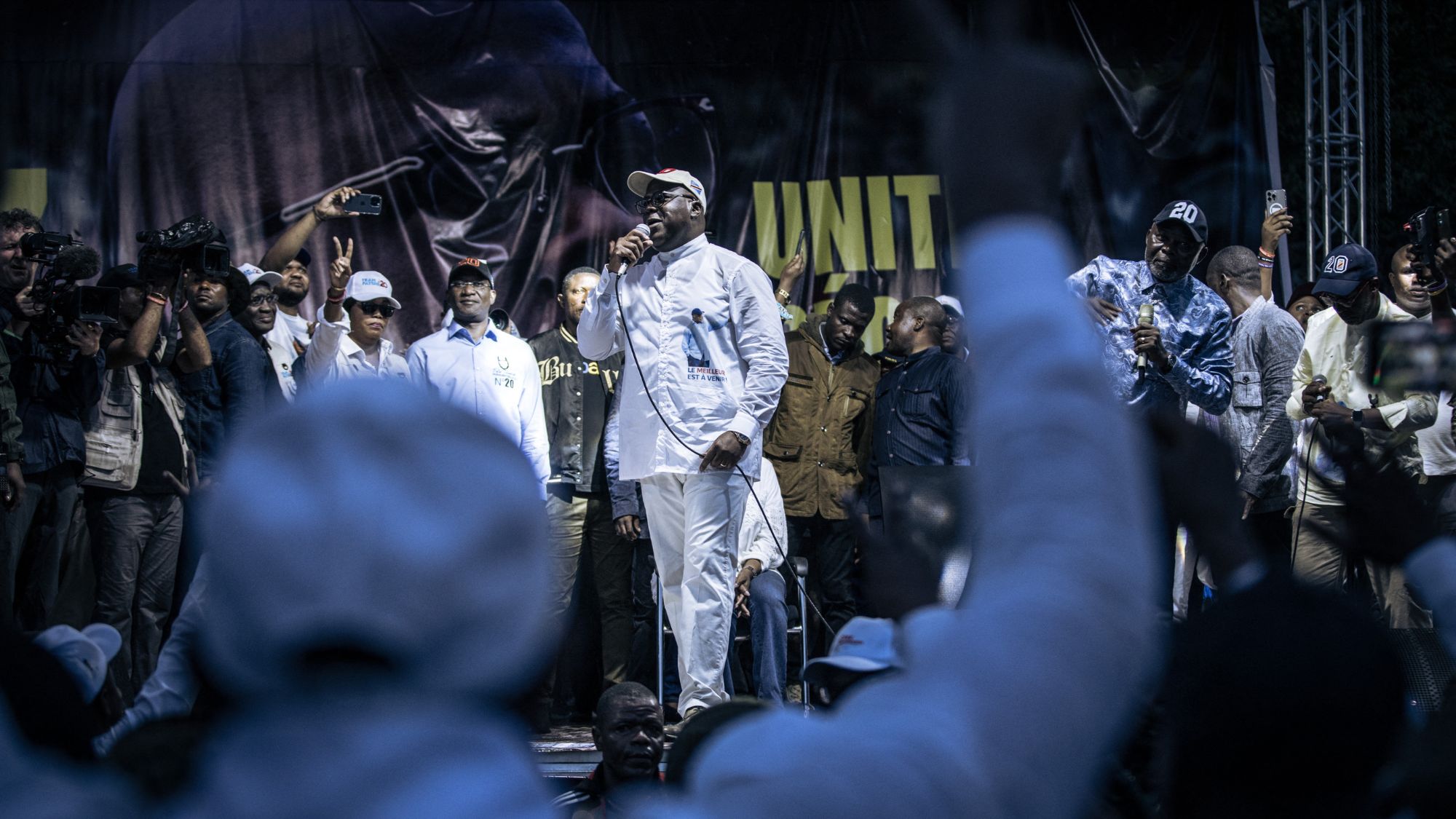Congo election: the vote that will shape the future of central Africa
Analysts fear Africa's fourth most populous country may be heading for 'sham elections'

A free daily email with the biggest news stories of the day – and the best features from TheWeek.com
You are now subscribed
Your newsletter sign-up was successful
More than 44 million people go to the polls today in the Democratic Republic of Congo in an election that analysts say could have "deep implications" for the region.
Voters in Africa's fourth most populous country will elect a new president as well as parliamentary, provincial and municipal representatives.
If the election is deemed to be a success, it "could go some way towards enhancing stability in the country", said the BBC. However, said Reuters "after a chaotic campaign", the country's opposition groups have warned about "impending fraud, electoral violence, and logistical setbacks that could prevent many from voting".
The Week
Escape your echo chamber. Get the facts behind the news, plus analysis from multiple perspectives.

Sign up for The Week's Free Newsletters
From our morning news briefing to a weekly Good News Newsletter, get the best of The Week delivered directly to your inbox.
From our morning news briefing to a weekly Good News Newsletter, get the best of The Week delivered directly to your inbox.
A peaceful transition of power?
For the Congolese, this election "could be historic", said The East African: either an incumbent will retain the presidency through the vote, or a new president "could take power peacefully".
Yet the signs are not good, said Al Jazeera. In 63 years of independence, the Democratic Republic of the Congo (DRC) "has only had one peaceful transition of power", which came after the contentious 2019 election of Felix Tshisekedi, who is now standing for a second five-year presidential term.
The problem is that in that election, Tshisekedi's main rival Martin Fayulu had actually won a "thumping victory", The Economist said. But the electoral authorities "announced wildly different numbers and handed the presidency to Tshisekedi".
Many Congolese "suspect a stitch-up", but the US and others "turned a blind eye for fear that if it did not, Congo might turn to China for support", the magazine said – a threat Congolese politicians "use often and shrewdly".
A free daily email with the biggest news stories of the day – and the best features from TheWeek.com
This time around, Fayulu has again voiced dissatisfaction with the Independent National Electoral Commission (CENI), saying the DRC is heading for "sham elections". Some disenchanted young people told Al Jazeera they will not "waste" their time at the polls.
Proxy war
The election is taking place against a backdrop of violence in the east of the country. Congolese soldiers and Rwanda-backed rebels, the M23, have been battling in eastern Congo with increasing frequency since May, "worrying US officials that the violence would lead to a direct confrontation between the two countries", said Politico.
So far, a US-brokered truce is holding, but the threat of the proxy war turning into a direct confrontation between Rwanda and the DRC has led to incendiary speeches on the campaign trail.
According to The Economist, "around the time Britain's Parliament was declaring Rwanda to be safe for asylum-seekers", Congo's president, Felix Tshisekedi, "was telling a cheering crowd… that his Rwandan counterpart, Paul Kagame, was acting 'like Hitler' and would end up like him".
Tshisekedi has also been "stirring up nationalist fervour in the population", said the Financial Times, and branding his political opponents as "agents of the DRC's eastern neighbour".
"There is proof that Rwanda has a candidate. That's why I'm talking about the 'candidate from abroad'," Tshisekedi told the Financial Times in an interview. "Quite simply, Rwanda wants my failure. It wants to have candidates like [Tshisekedi's rival candidate] Moïse Katumbi."
'Fragmented' opposition
In a country with what The Guardian calls "a history of stolen elections", the chances of preventing the incumbent president, Tshisekedi, from securing a second five-year term appear remote, not least because of how many candidates are standing.
A "fragmented opposition" in a single first-past-the-post ballot "greatly favours the incumbent", said The Guardian, so much so that one presidential candidate, Floribert Anzuluni, claims 15 of the candidates were "created by the regime".
For his part, President Tshisekedi insists that today's vote will be rolled out credibly. "We must stop scaring people," Tshisekedi told The Associated Press. "We'll be going (to the polls) with complete confidence until there's evidence to the contrary."
Amid the international community's indifference and patchy coverage in international press, "Congo matters", The Economist said.
Its huge reserves of cobalt will be "essential for the green transition" and its politics have impacts across the continent.
For these reasons, if the vote turns out to be a sham again, "outsiders should say so", especially America, the magazine said, which if it "wants to be taken seriously" as a "champion of democracy", should "not endorse electoral theft".
Arion McNicoll is a freelance writer at The Week Digital and was previously the UK website’s editor. He has also held senior editorial roles at CNN, The Times and The Sunday Times. Along with his writing work, he co-hosts “Today in History with The Retrospectors”, Rethink Audio’s flagship daily podcast, and is a regular panellist (and occasional stand-in host) on “The Week Unwrapped”. He is also a judge for The Publisher Podcast Awards.